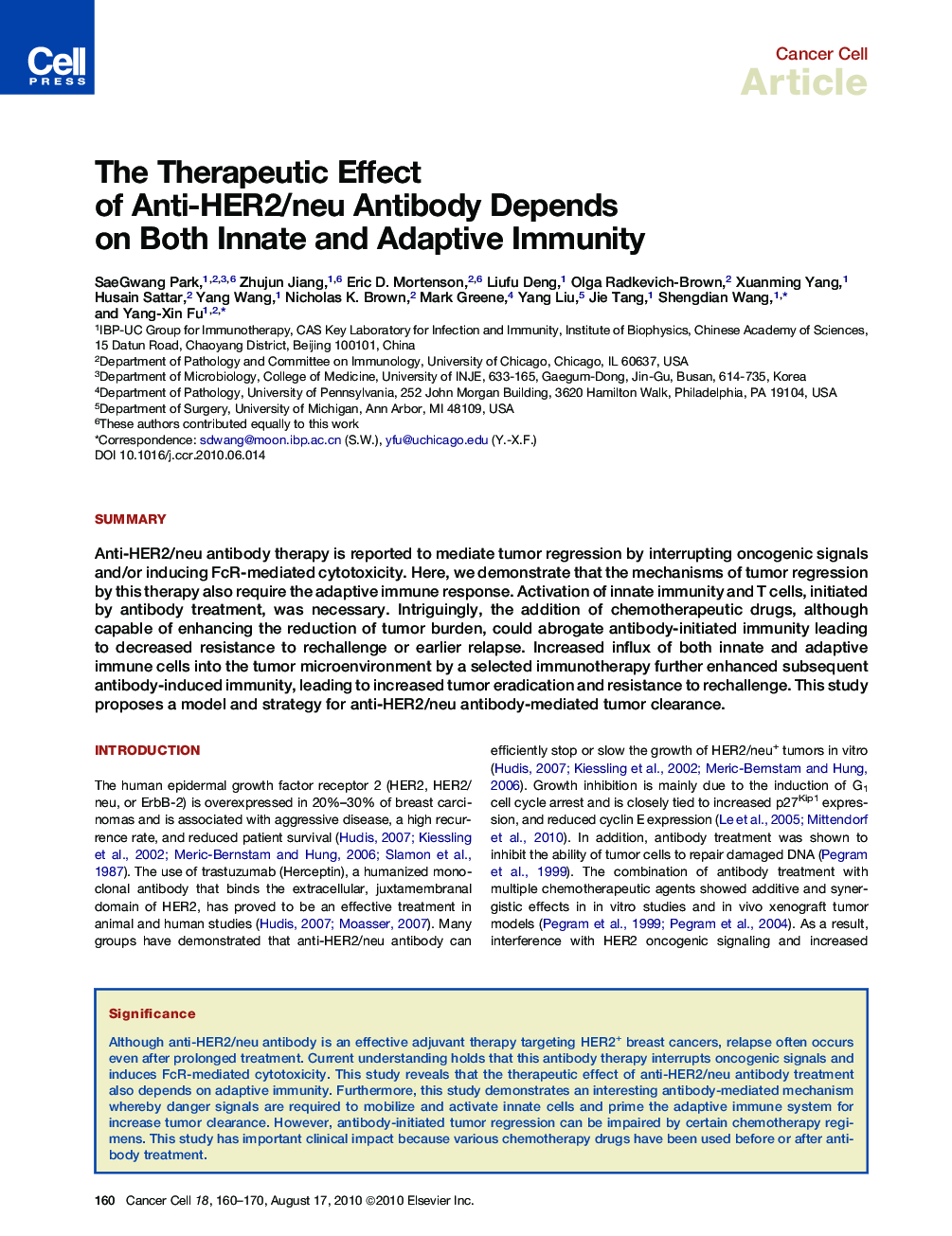| Article ID | Journal | Published Year | Pages | File Type |
|---|---|---|---|---|
| 2107525 | Cancer Cell | 2010 | 11 Pages |
SummaryAnti-HER2/neu antibody therapy is reported to mediate tumor regression by interrupting oncogenic signals and/or inducing FcR-mediated cytotoxicity. Here, we demonstrate that the mechanisms of tumor regression by this therapy also require the adaptive immune response. Activation of innate immunity and T cells, initiated by antibody treatment, was necessary. Intriguingly, the addition of chemotherapeutic drugs, although capable of enhancing the reduction of tumor burden, could abrogate antibody-initiated immunity leading to decreased resistance to rechallenge or earlier relapse. Increased influx of both innate and adaptive immune cells into the tumor microenvironment by a selected immunotherapy further enhanced subsequent antibody-induced immunity, leading to increased tumor eradication and resistance to rechallenge. This study proposes a model and strategy for anti-HER2/neu antibody-mediated tumor clearance.
► The tumor regression by anti-HER2/neu antibody is T cell-dependent ► FcR-dependent stress by antibody is required to prime adaptive immune cells ► Some chemotherapy drugs could abrogate antibody-mediated immunity ► A selected immunotherapy could further enhance antibody-mediated immunity
